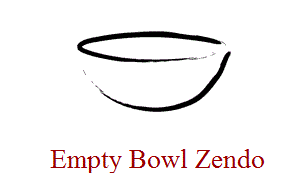The core teachings of Zen lie beyond words and concepts. Historically the teachings are passed on from teacher to student, a mind to mind transmission. To fully grasp and live out the teachings of our ancestors requires an intimate teacher student relationship.
Zen teacher Norman Fischer speaks about this in an article from Shambhala Sun magazine: “In most traditional meditation-based Buddhist practice there is a tremendous emphasis on the centrality of the teacher and the idea that insight cannot be learned from books nor is it a matter of mystical intuition. In order to be liberated from self-attachment, the student needs to let go of self-view, and this is nearly impossible to do alone, since self-deception is so natural.”
So this is to say that a good guide is very important to move forward in our practice; someone who knows the spiritual landscape and whose own insight has been sanctioned and approved by a realized teacher. The teacher/student relationship then, is a wonderful way to check and expand our insights and realizations because in our solitude we can deceive ourselves
There no specific form to the teacher/student relationship - the sole job of the teacher is to guide and assist the student to discover what Zen practice is, in the students own way.
A teacher is not going to be like a kindly parent or grandparent all the time, and the relationship is not like psychotherapy, although psychological issues may come up.
A teacher should be a guide pointing the way by being a living example of how to break out of the ego shell and awaken and may teach this in a variety of ways including actions or words - sometimes soft, sometimes harsh. A Zen teacher is not always going to be pleasant and easy to deal with. A part of the teaching is to help the student meet his/her “edges”, which means to look at where the student is holding on to some ego idea, concept or belief and assist him/her in recognizing the holding and in giving it up. In this process a teacher may suggest or say things that a student - a teacher will often rub a student the wrong way!
Once the student realizes the need for a teacher to guide and deepen his/her practice, it is important to find one who is compatible and who the student respects and wants to “dance” with even if s/he gives students a hard time.



